A number of people who are diagnosed with cancer will go through a period where they will consider taking vitamins and supplements for cancer. In these trying times, some of these individuals may even be in desperate need of a cure.
This entails researching a range of dietary supplements, herbs, and even extracts. Though it’s understandable that these vulnerable people would want to find a cure, it is equally important for them to also understand supplements for cancer patients.
In hopes to provide some reliable clarity, we’ve gotten in touch with Jerhne Chew Mei Cheng, the Director and Pharmacist of Smiles Pharmacy Sdn Bhd to share her expert opinion. We hope this article is informative for our readers who wish to learn more about cancer too.

1Twenty80: What is cancer and how it affects our body system?
Jerhne: Everyone has proto-oncogene (a gene involved in normal cell growth and division). When this proto-oncogene goes through structural changes (mutations), its biological function is altered and the mutated proto-oncogene will actively multiply and become more active than normal.
When this happens, it’s now called an oncogene, leading to the development of cancer. There must always be a balance of proto-oncogenes and tumor-suppressing genes. Cancer cells grow exponentially (gastric cancer, colon cancer, liver cancer, and pancreatic cancers) in about 33 days, and breast cancer around 40-plus days. Thus late-stage cancers grow super fast.
Cancer cells release toxins into our bloodstream, leading to weight loss, fatigue, anemia, loss of appetite, nausea, heatiness, organ damage, and many more. Hence, it’s important to increase our immune system to destroy the cancer cells from within.

Cancer cells release toxins into our bloodstream, leading to weight loss, fatigue, anemia, loss of appetite, nausea, heatiness, organ damage, and many more.

1Twenty80: Why are patients being discouraged to consume antioxidants or dietary supplements during chemotherapy?
Jerhne: One cytotoxic mechanism of cancer therapeutics is the generation of reactive oxygen species (ROS) that causes oxidative stress (a chemically triggered action in the body) that kills cancer cells. There has been concerns that the use of dietary supplements during treatment, particularly antioxidants, could reduce treatment efficacy as it reduces oxidative stress in the body.
A study released by the Journal of Clinical Oncology suggests that the use of antioxidant supplements during chemotherapy for breast cancer could negatively impact treatment efficacy. Many cancer therapies rely on the generation of reactive oxygen species (ROS). The use of antioxidants could therefore negate any treatment gains and potentially reduce treatment benefits through their antioxidative activities.
The study involved 1,134 breast cancer patients on similar chemotherapy regimens. Patient’s use of antioxidant vitamins: C, A, and E, carotenoids, and coenzyme Q10 was associated with a 41% increased risk for breast cancer recurrence when used both before and during chemotherapy. (Christine BA et al., 2020).
Iron supplements were shown to increase the risk of breast cancer recurrence and death. Iron allows the production of ROS which contributes to malignant transformation; in addition, tumors rich in iron content will tend to multiply. Iron may also interfere with antitumor immunity.
Vitamin B12 supplements were shown to increase the risk of breast cancer recurrence and death/poorer disease-free survival. The reasons for B12 supplement interference with cancer recovery and poorer outcomes are not certain but its negative effects were evident in the study.
General use of multivitamins either before or during chemotherapy had no effect on cancer recurrence or recovery. However, many evidence-based studies still show that integrative medicine is still needed during cancer treatments. Therefore, more research findings are much needed to ensure a better treatment and supplementation outcome for cancer patients.
1Twenty80: Why is Integrative medicine needed during cancer treatments?
Jerhne: Integrative medicine consists of supplements, herbs, and extracts. The importance of incorporating Integrative medicine in cancer treatment are:
- To minimise the side effects of radiotherapy and chemotherapy.
- To strengthen the immune system because cancer patients are susceptible to infections (from the disease/environment or from cancer therapy that suppress bone marrow and thus destroys white blood cells).
- Studies have also indicated that 90 percent of all known cancer are preventable by targeted nutrition (Grant,1990)
- To inhibit angiogenesis. Cancerous tumors rely on fast-growing networks of blood vessels to sustain their rapid growth rate. Curbing the rapid growth of blood vessels may starve the cancer cells.
1Twenty80: What are the supplements that can benefit chemotherapy patients?
Jerhne:
ORGANIC SELENIUM
Selenium could reduce the side effects of cisplatin (a chemo drug). Selenium’s role in redox regulation helps in maintaining membrane integrity and inhibiting oxidative injury to lipoprotein, lipids, and DNA. Altered redox homeostasis is found to be one of the contributing factors to tumorigenesis. The increase in oxidative stress causes DNA mutation, genome instability, tumor initiation, and progression.
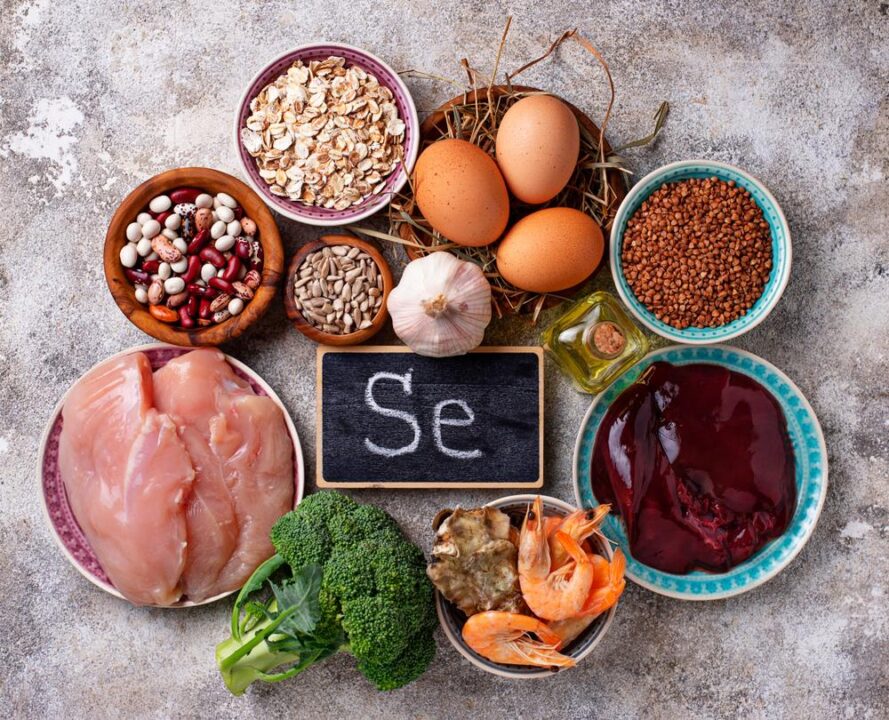
Selenium is involved in various biological processes like cellular proliferation, differentiation, and cell activities. Selenoprotein has strong antioxidant properties as it contains glutathione peroxidases which reduce hydrogen peroxides, lipid, glucose, and phospholipid hydroperoxides. This could inhibit oxidative stress and thus protect against cancer development and progression. Studies have shown that low serum levels of Selenoprotein are found in numerous types of cancers like colorectal cancer (Murawaki Y et al., 2008), gastric adenocarcinomas (Wang Q et al., 2009) and esophageal cancer (van Rensburg SJ et al., 1986). Selenium could also reduce the secretions of VEGF (Vascular Endothelial Growth Factor), and IL-6 (interleukin-6) and thus inhibit tumor cell invasion (Cat B et al., 2006).

VITAMIN C (ASCORBIC ACID/ASCORBATES = BIOLOGICALLY ACTIVE SALTS)
Malignant tumors secrete hyaluronidase enzymes which split glycosaminoglycans (glycosaminoglycans exist in intercellular cement) into small molecules. This weakens the intercellular cement (intercellular cement binds normal cells together) and eases malignant tumors to grow into their ‘metastases’. Vitamin C stimulates normal cells to produce an increased amount of hyaluronidase inhibitor which inhibits hyaluronidase enzyme activity, thus preventing excessive intercellular cement damage, leading to cement strengthening that makes metastases more difficult to take place.
Vitamin C also aids in detoxifying toxins that enter the body including carcinogenic chemicals. It inactivates viruses hence best for human cancers that are caused by viruses. Malignant tumors also secrete collagenase enzymes that break down collagen fibrils in the intercellular cement, leading to weakened intercellular cement. Vitamin C is needed for collagen synthesis, to make more collagen fibrils to strengthen intercellular cement. This will make tumors harder to spread to other regions.
Cancer patients who have undergone adjunct treatment with Vitamin C supplementation claimed to have improved appetite and mental alertness. The requirement for pain-killing drugs (such as heroin, morphine in skeletal metastases due to pressure of growth in restricted spaces) was reduced. There is a slowing down rate of accumulation of malignant effusions. Vitamin C supplementation is best to start early to prevent the progression of cancer.
RHODIOLA
Rhodiola consists of a constituent called salidroside. It is best taken 1 week before chemotherapy to reduce heart damage induced by chemo drug epirubicin.
OMEGA 3 (EPA)
Omega 3 reduces inflammation, increases immunity, and inhibits tumor growth.

TOCOTRIENOL
Vitamin E reduces the oxidation of unsaturated fatty acids. It also stimulates PHLPP1 (anti-cancer gene) to produce phosphatase which inhibits tumor growth.
GREEN TEA (EGCG)
Green tea’s anti-cancer properties come from polyphenols. It inhibits angiogenesis (the development of new blood vessels), thus starving the cancerous cells of nutrients. Green tea is a powerful antioxidant to kill many cancer cell lines.
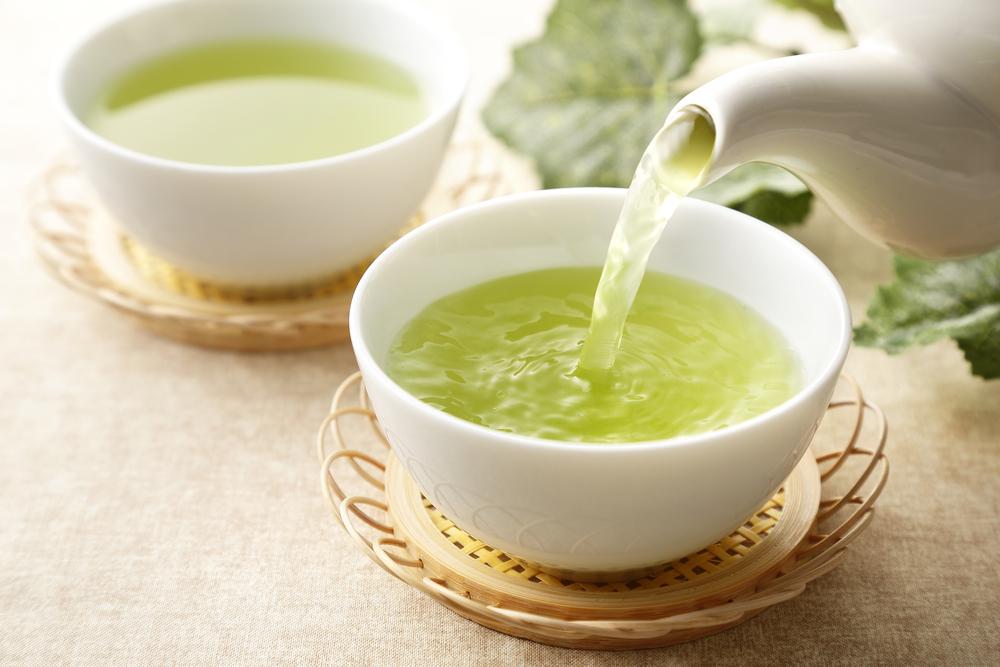
GARLIC
Studies show that garlic consumption reduces colorectal cancer and stomach cancer. China’s Preliminary Prostate cancer research found that garlic consumption and garlic supplementation reduce prostate cancer risk.
1Twenty80: What diet advice would you give in regard to reducing the risk of developing cancers?
Jerhne:
CONSUME MORE RAW, DARK LEAFY GREENS AND COLORFUL VEGETABLES AND REDUCE ANIMAL PROTEINS
Dark leafy greens consist of a tremendous amount of live nutrients, enzymes, vitamins, and minerals that are essential for hyper-nourishing the body cells and for optimal organ functions. They play a major role in liver and kidney detox and thinning of the blood, enabling better blood circulation and nutrient transport to various cells and organs. Moreover, vegetable fibers are needed to feed the gut microflora which aids in immune defense and disease reversal.
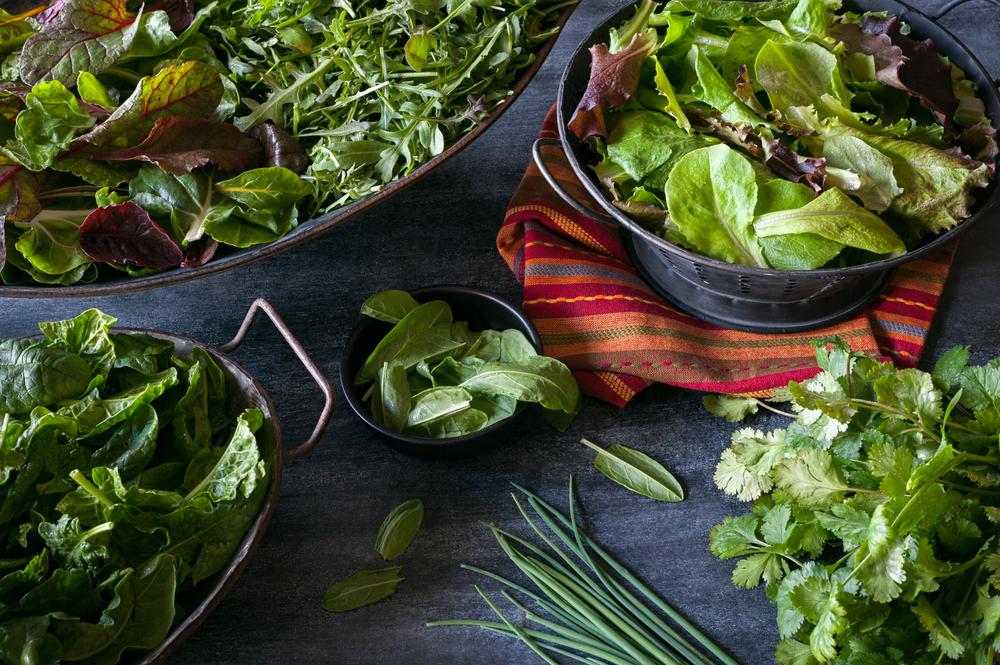
AVOID OR MINIMISE REFINED CARBOHYDRATES AND CONSUME MORE COMPLEX CARBOHYDRATES
Carbohydrate is the main culprit in raising serum glucose and disrupting glucose lipid balance. Best to reduce the intake of refined carbohydrates which include rice, noodles, biscuits, bread, and other flour products. Complex carbohydrates such as sweet potatoes, cassava, and bamboo shoots can be used to combat cravings for carbohydrates. On top of that, it is advisable to consume soy isolate smoothies to combat hunger pangs and avoid the need of snacking.
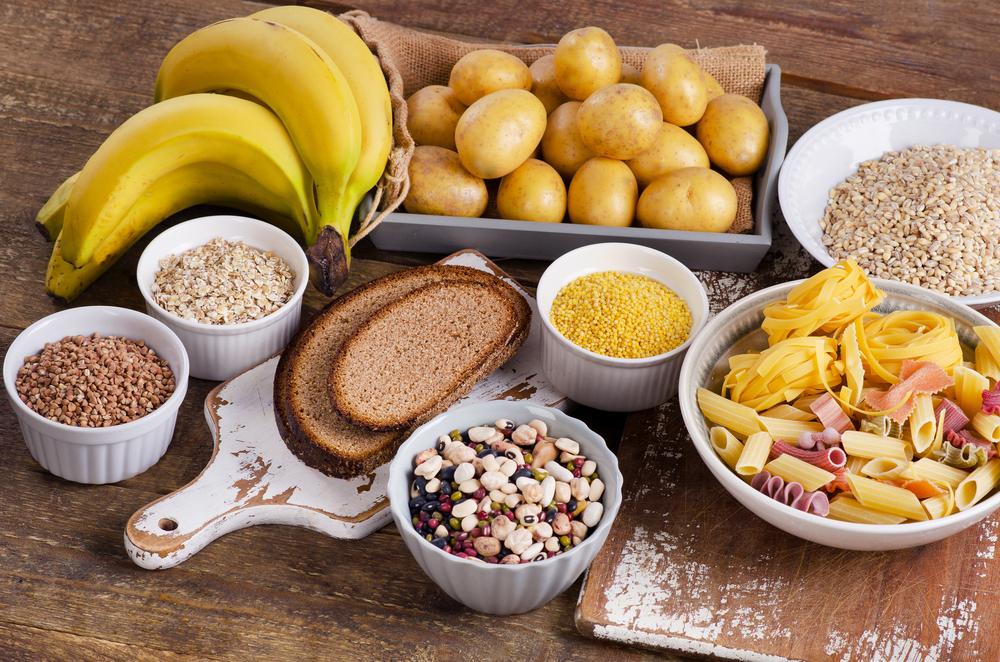
REMOVE INFLAMMATORY FOOD AND ADOPT A HEALTHY COOKING METHOD
Avoid fried food as frying is a carcinogenic (cancer-causing) cooking method. During the frying process, the aroma that is derived from the frying process contributes to chronic diseases such as hypertension, diabetes mellitus, cardiovascular disease, stroke, rheumatism, Alzheimer’s, and cancers. If the frying method must be used, then opt for healthier cooking oil with a higher boiling temperature such as coconut oil. Do fry with garlic, basil, ginger, and/or lemongrass to enhance taste and boost antitumor activities.
Avoid AGED (Advanced Glycation End Product) which is highly inflammatory and carcinogenic. Red meat, cream cheeses, margarine, mayonnaise, hydrogenated vegetable oils, processed food, and fried products are very high in AGEs. Certain cooking methods that require high cooking temperatures would cause the formation of AGEs. These include methods like dry-heat air frying, barbecuing, baking, frying, toasting, sautéing, roasting, and searing. Instead, adopt healthier cooking methods with moist heat, lower temperature, and shorter cooking time, such as steaming, boiling, stewing and poaching.

REDUCE INTAKE OF HIGH FRUCTOSE PRODUCTS
Sugar feeds cancer. Avoid fruit juices, sodas, bubble tea, or sweet-fructose-packed fruits. Plain water, green tea, Graviola, and Jiao Gu Lan tea can be used as alternatives.
VEGETABLE SMOOTHIES TO COMBAT CANCERS
Take two liters of green smoothies per day. The green smoothies should consist of at least 75 percent greens (Dark leafy greens, spinach, mixed greens, cruciferous ones like broccoli and kale ) and 25 percent fruits. On a daily basis, feed on large portions of salads (which are about 8 to 10 cups of raw vegetables) consisting of good herbs and spices as well (such as turmeric, ginger and so on). Raw vegetables are the best source of phytoenzymes and phytonutrients. Vegetable fiber and water ease constipation and is a good way for colon cleansing.
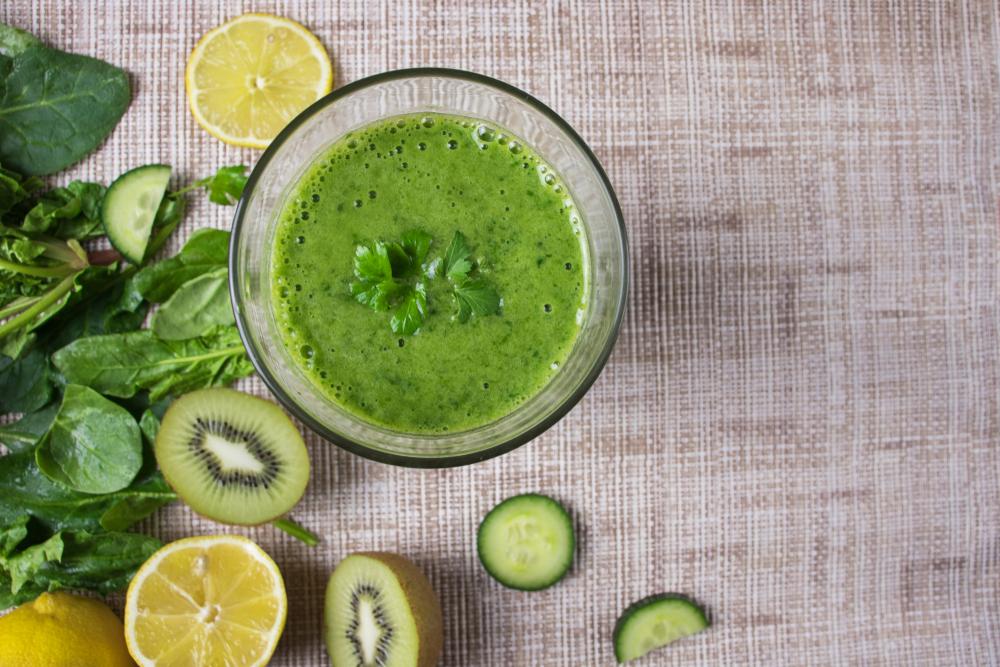
In essence, green smoothies are especially suitable for chemo patients that have appetite loss and a drop in immunity due to the side effects of chemotherapy. It’s easily digestible and a good way to replenish nutrients in malnourished chemo patients.
HEALTHY OMEGA 6 TO 3 FATS RATIO
We must have a good ratio of 3:1 of omega 6 to 3. This will ensure that the cell membranes are functioning optimally in absorbing nutrients and excreting toxins. The types of good dietary fats: are almond, olive oil, virgin coconut oil (VCO), avocado oil, and sesame oil. An ‘OMEGA test’ can be done to assess the health of cells by getting the actual ratio of different omega in our body.
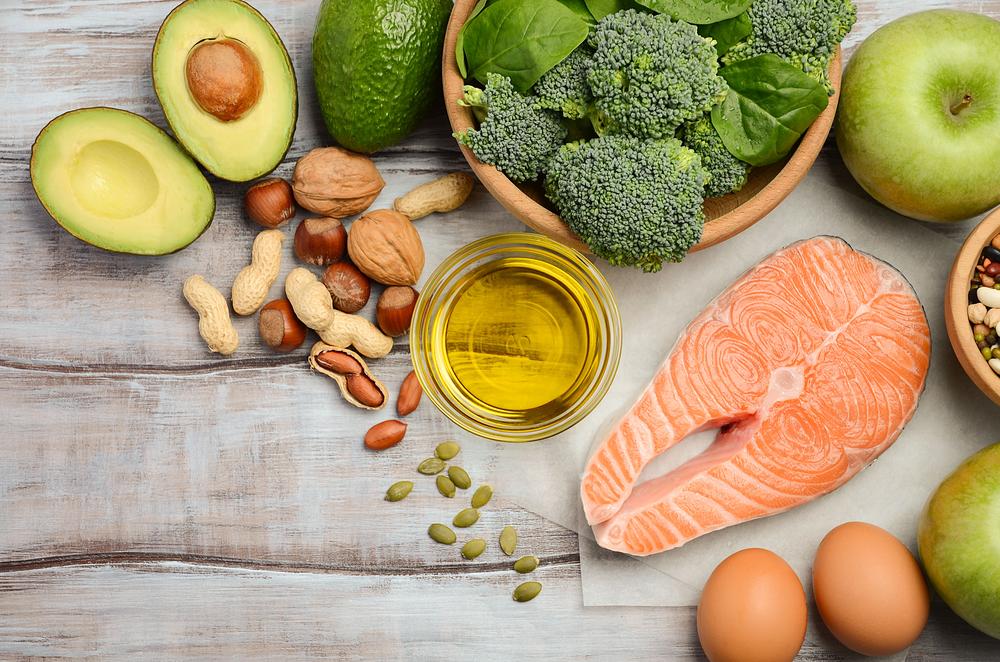
AVOID ALCOHOL
Alcohol may promote aromatisation (a process that changes the hormones to estrogen), leading to an increase in estrogens level that would augment cancer risk if the liver converts them along the 4-hydroxy or 16-alpha hydroxy pathway.

CONSUME FOOD THAT HAS ANTIANGIOGENIC (THE GROWTH OF NEW VESSELS) ACTIVITIES
The types of anti-angiogenic food are tomato, strawberries, blackberries, raspberries, blueberries, oranges, grapefruit, lemons, apples, cherries, red grapes, red wine, bok choy, cavolo nero kale, soybeans, ginseng, maitake mushroom, turmeric, nutmeg, chestnut, lavender, pumpkin, parsley, garlic, green tea, dark chocolate and tree nuts.
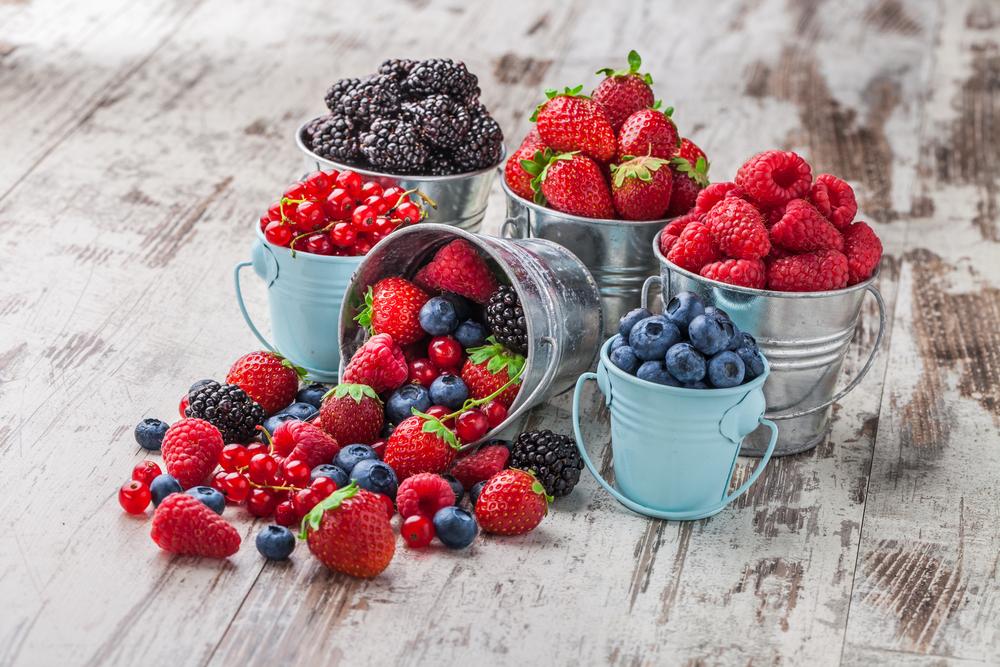
1Twenty80: Does sleep play a role in cancer prevention?
Jerhne: Yes, quality sleep is important. Our immune system self-repairs from 10 pm to 2 am. If your immune cells, endocrine system, and nervous system can’t self-repair, the whole system will get into massive chronic inflammation. Thus altering biological functions and increase the risk of cancer.

1Twenty80: What lifestyle recommendations do you have for people hoping to prevent cancer?
Jerhne: I would say quit smoking by gradually reducing the number of cigarettes or you can opt to quit cold turkey. This helps by reducing oxidative stress induced by smoking that could lead to cell DNA mutations.
Avoid stressful lifestyles by learning good stress management skills. There are various means like breathing techniques, meditation, energy medicine classes and even getting to know groups of people with higher positive energy vibes. Learn to adopt positive mental habits as negative thoughts and anxiety may cause oxidative stress and inflammation in the body which will harm the cells.
If you are looking for what’s wrong, you will always find it; if you are looking for what’s right, you will always find it too. Be grateful. Have the habit of writing down five things that went well today and write about whom you are grateful towards. For example, I am grateful that my mom came to help me cook dinner while I am busy editing my documents.
Trust me, by doing this daily, you will start to see the brighter side of things and your body will feel lighter and healthier. It’s the inner energy and positive thoughts in us that depict how we are going to react to the outside world. Do not worry about tomorrow, nor about the past, embrace the moment and live it to the fullest, your body will learn to adapt and heal.
Include exercise routines like yoga, aerobic exercises, running, or even massages for lymphatic drainage. It’s a good way for the body to detox itself from physical and mental toxins. Do heavy metal tests and detoxification to reduce the risk of cancer developing. Always ensure good weight management with healthy food choices and exercise regimens.

References:
- Diplock AT. Antioxidants and disease prevention. Mol Aspects Med. 1994; 15(4): 293-376.
- Murawaki Y, Tsuchiya H, Kanbe T, Harada K, Yashima K, Nozaka K, Tanida O, Kohno M, Mukoyama T, Nishimuki E, Kojo H, Matsura T, Takahashi K, Osaki M, Ito H, Yodoi J, Murawaki Y, Shiota G. Aberrant expression of selenoproteins in the progression of colorectal cancer. Cancer Lett. 2008 Feb 8; 259 (2) : 218-30.
- Wang Q, Gong L, Dong R, Qiao Q, He XL, Chu YK, Du XL, Yang Y, Zang L, Nan J, Lin C, Lu JG. Tissue microarray assessment of selenoprotein P expression in gastric adenocarcinoma. J Int Med Res. 2009 Jan-Feb; 37 (1) : 169-74.
- Van Rensburg SJ, Hall JM, Gathercole P. Inhibition of esophageal carcinogenesis in corn-fed rats by riboflavin, nicotinic acid, selenium, molybdenum, zinc and magnesium. Nutr Cancer. 1986; 8 (3) ; 163-70.
- Cat B, Stuhlmann D, Steinbrenner H, Alili L, Holtkötter O, Sies H, Brenneisen P. Enhancement of tumor invasion depends on transdifferentiation of skin fibroblasts mediated by reactive oxygen species. J Cell Sci. 2006 Jul 1; 119 (Pt 13) : 2727-38.
- Llor X, Jacoby RF, Teng BB, Davidson NO, Sitrin MD, Brasitus TA. K-ras mutations in 1,2-dimethylhydrazine-induced colonic tumours: effects of supplemental dietary calcium and vitamin D deficiency. Cancer Res. 1991; 51: 4305-4309.
- Penman ID, Liang QL, Bode J, Eastwood MA, Arends MJ. Dietary Calcium Supplementation increases apoptosis in the distal murine colonic epithelium. J Clin Pathol. 2000; 53: 302-307.
- Garland CF, Comstock GW, Garland FC, Helsing KJ, Shaw EK, Gorham ED. Serum 25-hydroxyvitamin D and colon cancer: eight-year prospective study. Lancet. 1989: 2: 1176-1178.
- Chandler PD, Buring JE, Manson JE, Giovannucci EL, Moorthy MV, Zhang S. Circulating Vitamin D Levels and risk of colorectal cancer in women. Cancer Prev Res. 2015; 8: 675-82.
- Lamprecht SA, Lipkin M. Chemoprevention of colon cancer by calcium, vitamin D and folate: molecular mechanisms. Nat Rev Cancer. 2003; 3 : 601-14.
- Cerda SR, Bissonnette M, Scaglione-Sewell B, Lyons MR, Khare S, Mustafi R, Brasitus TA. PKC-delta inhibits anchorage-dependent and -independent growth, enhances differentiation, and increases apoptosis in CaCO-2 cells. Gastroenterology . 2001; 120: 1700-1712.
- Butel JS. Viral carcinogenesis: revelation of molecular mechanisms and etiology of human disease. Carcinogesis. 2000; 21(3) : 405-26.
- Grant JP. Proper use and recognized role of TPN in the cancer patient. Nutrition. 1990; 6(4 Suppl): 6s-7s.
- Christine BA, Gary RZ, Alan DH, William EM, Susan EM, William EB. Dietary Supplement Use During Chemotherapy and Survival Outcomes














